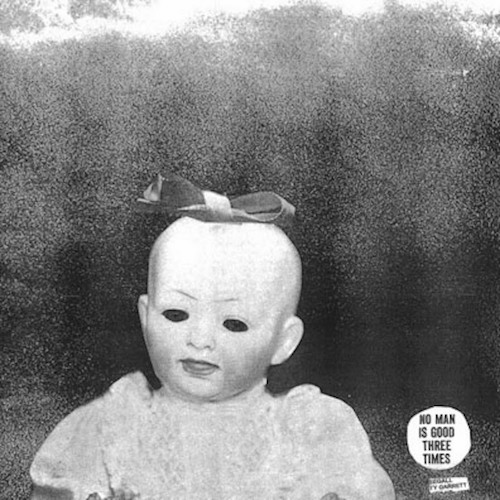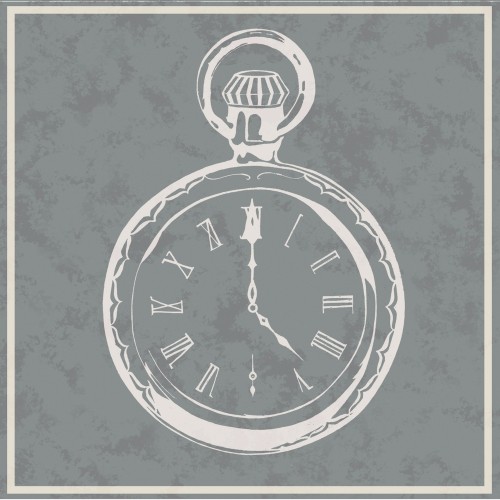 Release Date: October 23rd, 2012
Release Date: October 23rd, 2012





Where you’re from affects so much about who you are, and where your creativity sprouts from. Just this month, Titus Andronicus have cemented themselves as Jersey’s best dancers, and P.O.S. reestablished his fortress of Upper-Midwest aggro-rap. Where you’re from can be a badge of honor, an inescapable trap, a madcap love affair, or just another place on the road.
For Kendrick Lamar, his hometown of Compton plays a little bit of all of these roles. Almost a decade into his career, already on his second moniker and now releasing his second proper LP, good kid, m.A.A.d. city, Lamar has been tied to the dangerous rap incubator in both intended (Dr. Dre’s seal of approval) and unintended (his birth) ways. Good Kid is a remarkably cogent “short film” on the diametric oppositions that frequently tear Lamar into disfigured voices and personal projection. Or, as he says at two distinctly different points on the record – “C-O-M-P-T-O-N my city’s mobbin’ in the streets” and “Kendrick, AKA Compton’s human sacrifice.”
The particular excellence of Good Kid lies in how easily it would be to listen to the album and derive no unordinary west-coast schizo-rap narrative past the occasional reference to praying. Where Lupe Fiasco’s conceptual sophomore effort The Cool beat the listener over the head with an overwrought and hard to discern narrative, Good Kid works almost just as well as a collection of raps. Opening singles “Backseat Freestyle” and “Swimming Pool (Drank)” are deceptive. On its face, the former is a cataclysmic Hit-Boy joint about asserting that great rap quality, power. The latter is another west-coast staple, the swoony drunk anthem with gorgeous chorus. And this is a perfectly acceptable interpretation. It’s wrong, but it’s acceptable. What you’d miss is that “Backseat” is a alternate universe Kendrick about how he acts when freestyling with his “homies” in the van. “Swimming Pool” isn’t so much clubby as woozy, a lamentation on the affects alcohol has on the lower income community. Interpreting the singles as they are, then, leads to a remarkable reading of clear-headed criticism, elicited by a kid with more perspective to speak on those issues than most professors.
One of those main themes, one that ties the record’s narrative together, is homies. Homies are most directly referenced in the synthy “Art of Peer Pressure,” but their presence invades most of Good Kid. It’s the homies who get K-Dot, the main character of Lamar’s audio play, faded and pissed off about getting rebuffed by two hoodies just 250 feet away from getting laid like he had never believed. It’s those same homies who “fuck yo truce” and fight violence with violence. It’s the kind of homie Lamar dives into on the first verse of the beautiful, heartbreaking “Sing About Me, I’m Dying of Thirst.” Yet even if he’s not riffing on this longform narrative (and he deviates into equally pristine short stories on most of the tracks), Lamar seems to understand that most everybody he talks about and inhabits is less than blameless. Money, drugs, guns, impressionable youth taught that revenge is a dish best served anytime, uninvolved parents obsessed with Dominos; good kid is almost hopeless, an endless minefield of wrong decisions, of which the choice between Bloods and Crips might be the safest of all.
But what keeps good kid from descending too far into its own maze is Lamar himself. Recklessly intelligent, Lamar spits out meaningful platitudes like he’s got a book full of them. “The one in front of the gun lives forever” goes the chorus of “Money Trees.”You living in a world that come with plan B / cause plan A never relay a guarantee / and plan C never could say what it was” on the strangely affectless “Real” or the entirety of “I’m Dyin’ of Thirst.” Despite that he’s been in the rap game spouting consciously for a number of years, it seems like Kendrick is only now beginning to read from his strongest book of stories.
The wobbly, neuvo-west coast trunk rattlers here help reinforce Kendrick’s point. Every beat reinforces a narrative theme. “Good Kid” is a hazy Pharell bit that plays like a movie soundtracking for influencing one’s mind. “Poetic Justice” uses a slithery Janet Jackson hook to form a slow-grinder out of Lamar’s thesis that money corrupts most around it. Tracks frequently cut out for a second then come back completely different, then when we hear Kendrick’s voice again, it’s almost unrecognizable. Beats serve Kendrick, Kendrick serves his narrative.
Then there’s the slightly out of place closer. “Compton” is a joyous, buoyant number almost identical to “We Major,” and features the deep baritone of Lamar’s new benefactor, Dre. His verse isn’t bad, and neither is the beat. Both are quite good actually. And Lamar flexes his narrative just enough to make the hook seem sad and glorious at the same time. But it doesn’t match what the album needs for a closer.
Sad, since good kid, m.A.A.d. city is so conceptually beautiful and perfectly executed. Lamar, even in his young age, knows how to reach the most ears as possible – accessing a classic trope (west coast OG rap) and revamping it to serve the dark-hop supernova occurring in today’s culture. Yet, through his machinations on how to create hits (and he has created at least three here), Kendrick Lamar never really gives up the ghost, never deems to sacrifice his mission statement. Because he knows how important this record could be to his hometown. And in a way, good kid, m.A.A.d. city might be exactly what Compton needs, from one of its most reluctant heroes.
Kendrick Lamar – good kid, m.A.A.d. city Tracklist
- “Sherane AKA Master Splinter’s Daughter”
- “Bitch Don’t Kill My Vibe”
- “Backseat Freestyle”
- “The Art of Peer Pressure”
- “Money Trees” (feat. Jay Rock)
- “Poetic Justice” (feat. Drake)
- “Good Kid”
- “M.A.A.D. City” (feat. MC Eiht)
- “Swimming Pools (Drank)”
- “Sing About Me, I’m Dying of Thirst”
- “Real” (feat. Anna Wise of Sonnymoon)
- “Compton” (feat. Dr. Dre)


